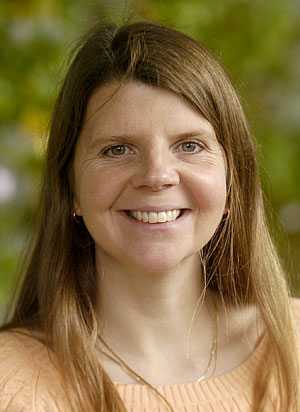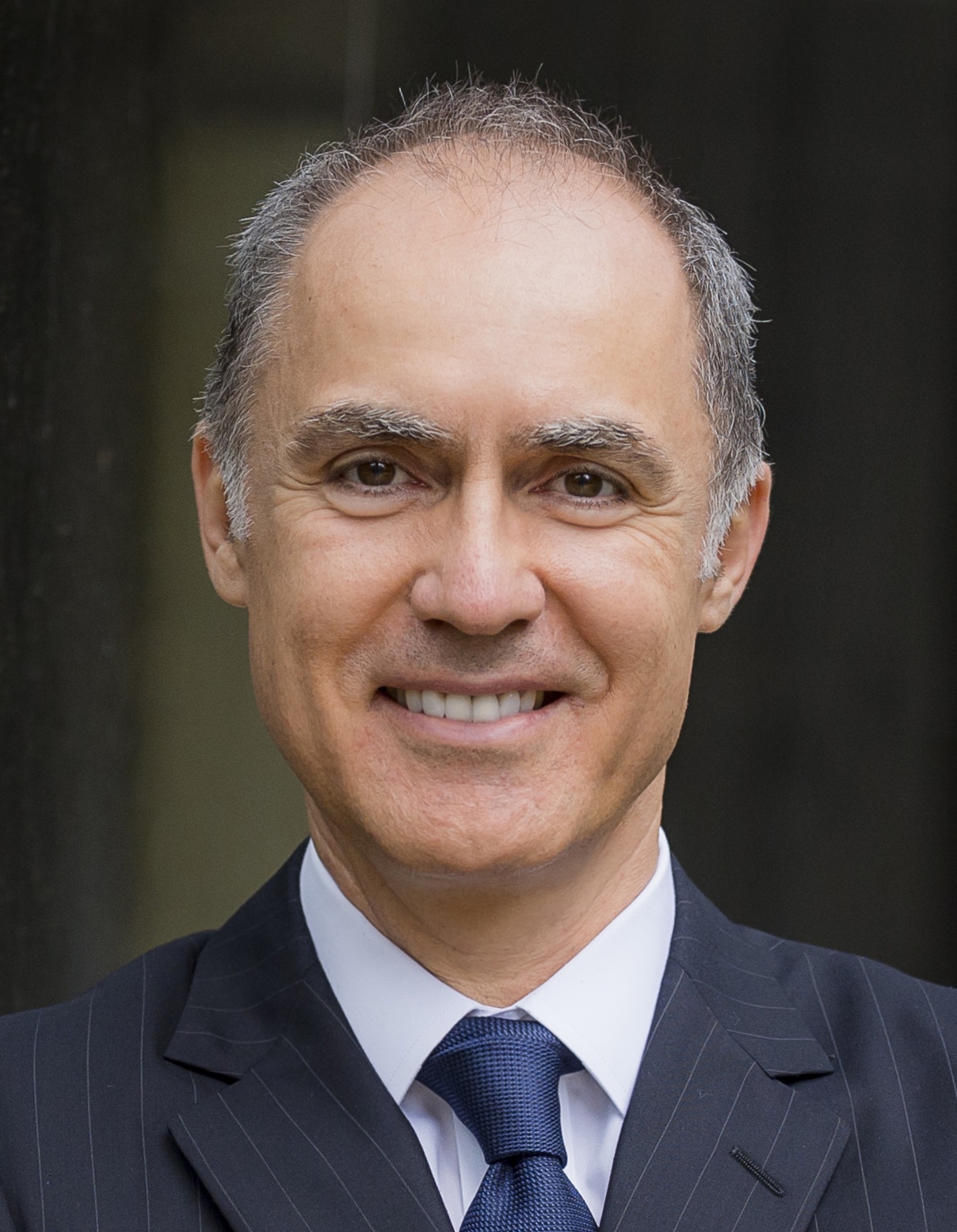|
Aside from the technical sessions, the 2014 CDC will feature two plenary
lectures and the Bode Lecture.
The Bode Lecture will be presented by Prof. Bruce Francis
of the Electrical and Computer Engineering department,
University of Toronto, Canada.
The two plenary speakers will be Prof. Claire Tomlin
of the Electrical Engineering and Computer Sciences
department, University of California, Berkeley,
and Prof. Miroslav Krstic
of the Mechanical and Aerospace Engineering department,
University of California, San Diego.
| Bode Lecture and Plenaries: |
| Bode Lecture:
|
| |
|
 Bruce Francis,
Electrical and Computer Engineering Department,
University of Toronto, Canada.
Bruce Francis,
Electrical and Computer Engineering Department,
University of Toronto, Canada.
Bode Lecture Title:
The Robot Rendezvous Problem.
Abstract:
Distributed robotics refers to the control of, and design methods for, a system of mobile robots that 1) are autonomous, that is, have only sensory inputs---no outside direct commands, 2) have no leader, and 3) are under decentralized control. The subject of distributed robotics burst onto the scene in the late twentieth century and became very popular very quickly. The first problems studied were flocking and rendezvous. The most highly cited IEEE TAC paper in the subject is by Jadbabaie, Lin, and Morse (2003). This lecture gives a classroom-style presentation of the rendezvous problem.
It is the most basic coordination task for a network of mobile robots. The robots in the rendezvous problem in the literature are most frequently kinematic points, modeled as simple integrators, dx/dt = u. Of course, a real wheeled robot has dynamics and is nonholonomic, and the first part of the lecture looks at this discrepancy. The second part reviews the solution to the rendezvous problem. The final part of the lecture concerns infinitely many robots. The lecture is aimed at non-experts.
Biography.
Bruce Francis obtained his B.A.Sc. and M.Eng. degrees in Mechanical Engineering and his Ph.D. degree in Electrical Engineering from the University of Toronto in 1969, 1970, and 1975, respectively. His PhD advisor was Murray Wonham. He received a two-year NSERC Postdoctoral Fellowship in 1975. He spent the first year in the EECS Department at the University of California, Berkeley, and the second year in the Control and Management Systems Division, University of Cambridge. In 1977 he received postdoctoral support in Montreal from George Zames at McGill and M. Vidyasagar at Concordia. This turned into a faculty position in the EE Department at McGill during 1978-79. He spent 1979-81 at Yale University. He returned to Canada in 1981, to the University of Waterloo. Finally, he returned to his alma mater, the University of Toronto, in 1984. He retired in 2011 and is now Emeritus Professor. He received four teaching awards at U of T. He became a Fellow of the IEEE in 1988 and a Fellow of the Canadian Academy of Engineering in 2010. He was a co-recipient of two Outstanding Paper Awards for papers appearing in the IEEE Transactions on Automatic Control and a co-recipient (with Doyle, Glover, and Khargonekar) of the 1991 IEEE W.R.G. Baker Prize Award. He held a Japan Society for the Promotion of Science Fellowship in 1989, and gave the Peter Sagirow Seminar at the University of Stuttgart in 2010. He received the Bode Lecture Prize in 2014 and the IEEE Control Systems Award in 2015.
|
| |
| Plenary lectures:
|
| |
|
 Claire Tomlin,
Electrical Engineering and Computer Sciences department,
University of California, Berkeley.
Claire Tomlin,
Electrical Engineering and Computer Sciences department,
University of California, Berkeley.
Plenary Title:
Hybrid Systems: Analysis and Control
Plenary Abstract.
Hybrid systems are a modeling tool allowing for the composition of continuous and discrete state dynamics. They can be represented as continuous systems with modes of operation modeled by discrete dynamics, with the two kinds of dynamics influencing each other. Hybrid systems have been essential in modeling a variety of important problems, such as aircraft flight management, air and ground transportation systems, robotic vehicles and human-automation systems. These systems use discrete logic in control because discrete abstractions make it easier to manage complexity and discrete representations more naturally accommodate linguistic and qualitative information in controller design.
A great deal of research in recent years has focused on the synthesis of controllers for hybrid systems. For safety specifications on the hybrid system, namely to design a controller that steers the system away from unsafe states, we will present a synthesis and computational technique based on optimal control and game theory. In the first part of the talk, we will review these methods and their application to collision avoidance and avionics design in air traffic management systems, and networks of manned and unmanned aerial vehicles. It is frequently of interest to synthesize controllers with more detailed performance specifications on the closed loop trajectories. For such requirements, we will present a toolbox of methods combining reachability with data-driven techniques inspired by machine learning, to enable performance improvement while maintaining safety. We will illustrate these "safe learning" methods on a quadrotor UAV experimental platform which we have at Berkeley.
Biography.
Claire Tomlin is a Professor of Electrical Engineering and Computer Sciences
at Berkeley, where she holds the Charles A. Desoer Chair in Engineering.
She held the positions of Assistant, Associate, and
Full Professor at Stanford from 1998-2007, and in 2005 joined Berkeley.
She has been an Affiliate at LBL in the Life Sciences Division since January 2012.
Claire is an IEEE Fellow, and she received the Erlander Professorship of the
Swedish Research Council in 2010, a MacArthur Fellowship in 2006,
and the Eckman Award of the American Automatic Control Council in 2003.
She works in hybrid systems and control, with applications to biology,
robotics, and air traffic systems.
|
| |
|
 Miroslav Krstic,
Mechanical and Aerospace Engineering department,
University of California, San Diego.
Miroslav Krstic,
Mechanical and Aerospace Engineering department,
University of California, San Diego.
Plenary Title:
PDE Control: Designs and Applications
Plenary Abstract.
In addition to classical physical applications such as fluid flows in engines, thermal dynamics in buildings, flexible wings of aircraft, electrochemistry in batteries, or plasmas in lasers and tokamaks, PDEs are effective in modeling large multi-agent systems as continua of networked agents, with applications ranging from vehicle formations to opinion dynamics. In its early period PDE control focused on replicating linear control methods (pole placement, LQG, H-infinity, etc) in infinite dimension. Over the last 15 years, a continuum version of the "backstepping" method has given rise to control design tools for nonlinear PDEs and PDEs with unknown functional coefficients. Backstepping designs now exist for each of the major PDE classes (parabolic, hyperbolic, real- and complex-valued, and of various orders in time and space). As a special case, continuum backstepping compensates delays of arbitrary length and dependence on time in general nonlinear ODE control systems. I will present a few design ideas and several applications, including deep oil drilling (where a large parametric uncertainty occurs), extruders in 3D printing (where a large delay is a nonlinear function of the value of the state), and deployment of 2D meshes of agents in 3D space (where deployment into complex surfaces necessarily gives rise to coupled unstable PDEs).
Biography.
Miroslav Krstic holds the Alspach endowed chair and is the founding director of the Cymer Center for Control Systems and Dynamics at UC San Diego. He also serves as Associate Vice Chancellor for Research at UCSD. As a graduate student, Krstic won the UC Santa Barbara best dissertation award and student best paper awards at CDC and ACC. Krstic is a Fellow of IEEE, IFAC, ASME, and IET (UK), and a Distinguished Visiting Fellow of the Royal Academy of Engineering. He has received the PECASE, NSF Career, and ONR Young Investigator awards, the Axelby and Schuck paper prizes, the Chestnut textbook prize, and the first UCSD Research Award given to an engineer. Krstic has held the Springer Visiting Professorship at UC Berkeley. He serves as Senior Editor in IEEE Transactions on Automatic Control and Automatica, as editor of two Springer book series, and has served as Vice President for Technical Activities of the IEEE Control Systems Society and as chair of the IEEE CSS Fellow Committee. Krstic has coauthored ten books on adaptive, nonlinear, and stochastic control, extremum seeking, control of PDE systems including turbulent flows, and control of delay systems.
|
| |
|
We suggest that you use Firefox or Chrome instead of Internet Explorer, to prevent copyright upload issues to IEEE.
Key dates (2014)
| Submission Site Open: | January 4 |
Invited Session
Proposals Due: |
March 10 |
Initial Paper
Submissions Due:
Firm deadline, no extension! |
March 20 |
| Workshop Proposals Due: | May 1 |
Paper and Workshop
Decision Notification: | mid-July |
| Final Submission Open: | August 1 |
| Registration Opens: | August 1 |
| Accepted Papers Due: | September 20 |
Platinum Sponsors
Gold Sponsors
Silver Sponsors
Bronze Sponsors
Copper Sponsors
Click here to see the complete list of sponsors and exhibitors
|





